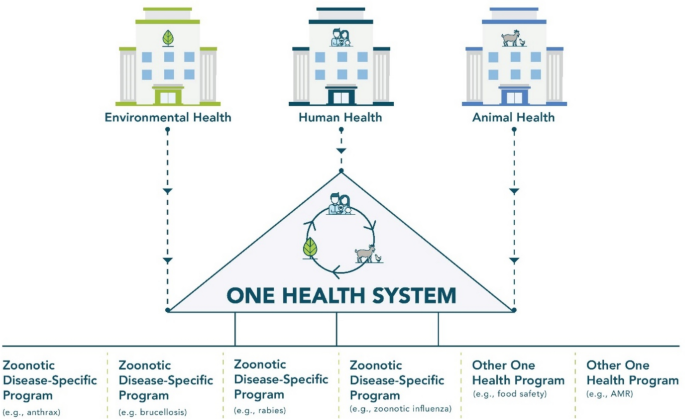Depending on the animal's age and overall health, medical issues can vary. The most frequent problems that animals suffer from are:
Infections caused by parasites like ticks, fleas or mites are a source of a variety of health issues in animals. Parasite prevention and regular check-ups are vital. Skin Conditions- Skin problems like dermatitis and allergies can cause irritation and discomfort to animals.
Ear infections - Ear infections is common among dogs and cats with ear canals that are floppy. It can cause pain, as well as hearing problems.
Dental Diseases such as periodontal disease, gum disease and tooth decay may affect the well-being of your pet.
Respiratory Diseases - When animals are in stressed or overcrowded environments animals may suffer from upper respiratory illnesses (pneumonia or asthma, and bronchitis) as well as pneumonia.
Arthritis and Joint Problems- Senior animals, as well larger breeds may suffer from arthritis and joint issues which may cause pain and decreased mobility.
Obesity - Pets who are overweight are at greater risk of developing heart disease, diabetes and joint problems.
Other digestive issues could be caused by dietary problems, infections or other conditions.
Cancer - Like human beings, animals are also susceptible to developing cancer. Treatments may include surgery, radiation or chemotherapy.
Injuries and Wounds - Injuries and wounds from fights, accidents or falls can cause soft tissue injuries like fractures. This requires medical attention. Regularly scheduled veterinary exams as well as vaccinations for pets as well as parasite control, and a balanced food diet are all ways to aid in preventing medical problems. In addition, if your animal exhibits signs of discomfort or sickness, you should seek medical attention immediately. The best of the finest cushings disease alternatives for more info.

What Are Some Of The Best Supplements And Vitamins Available For Canines?
Your dog's requirements and any recommendations from your veterinarian, should guide your choice of supplements, probiotics and vitamins. It is crucial to provide your dog with an adequate and balanced diet Some dogs could benefit from supplementation. Here are some common supplements for dogs and their benefits
Multivitamins. A high-quality dog food should contain all the vital nutrients, vitamins and minerals your dog needs. Multivitamin supplements may be beneficial for dogs that is a pet with special needs for diet or limitations. Be sure to select a supplement that is specifically designed for dogs, since certain vitamins may be harmful if taken in excess. Omega-3 Fat Acids - Omega-3 acids, such as fish oils are able to improve the health of your hair and skin, reduce inflammation and promote joint health. Dogs suffering from allergies, skin issues or arthritis are frequently advised to consume them.
Probiotics- Probiotics are beneficial bacteria that can support digestive health by maintaining a balanced microbiome of the gut. Probiotics are often used to treat digestive issues, like diarrhea, as well as to boost immunity.
Glucosamine & Chondroitin - These supplements are frequently used to improve joint health and decrease signs of arthritis specifically for older or large breeds.
It is essential to speak with your vet prior to giving your dog any kind of supplement because they will be able to offer advice specifically tailored to your dog's requirements and needs. The health of your dog, its age and size can affect the dosage. A high dose of supplements could cause harm. It is crucial to select supplements that are made by reliable producers. If you notice any unusual reactions or symptoms seek out your veterinarian right away. A well-balanced and veterinarian-recommended diet is typically the best way to meet your dog's nutritional needs, and supplements should only be used when necessary and under professional guidance. The top of the best pet ear health with herbs for blog recommendations.

How Common Are Kidney Failure Or Skin Allergic Reactions? Yeast Infection In Dogs? What Are The Treatment Options?
Dogs can suffer from skin allergies, kidney failure or yeast infections. Their frequency is contingent on factors like breed, age, and general health. This article provides a summary of these diseases, their prevalence, and possible treatments.
Yeast infections are prevalent in canines. They usually occur in the skin folds, ears, paws, and pads for paws. Breeds that have folds on their skin such as Bulldogs and Shar Peis may be more susceptible to these infections.
The symptoms include itching swelling or redness as well as a foul odor and discharge. Head shaking or discomfort can be caused by an ear infection.
Treatment: Treatment focuses on the root of the problem (e.g. allergies or skin folds) with antifungal creams applied to the skin and, in some instances oral antifungal medications. Proper hygiene will help.
There are a few breeds that suffer from these conditions. The frequency of these ailments can vary from breed to breed and breeds. Regular veterinary visits as well as a healthy diet and preventative measures such as flea control and proper sanitation could assist in reducing this risk. It is recommended to consult with your vet to get an accurate diagnosis of any health issue that may impact your dog, for example a skin allergies or kidney problems. Early intervention can lead to better outcomes and improved the quality of life for your pet. Check out the most beautiful pet herbal supplements for joint health for site examples.

